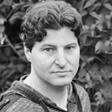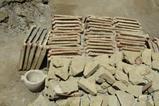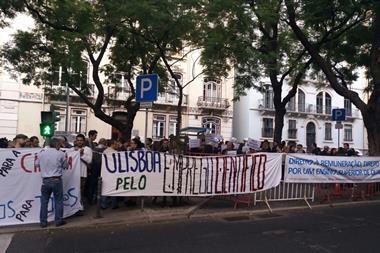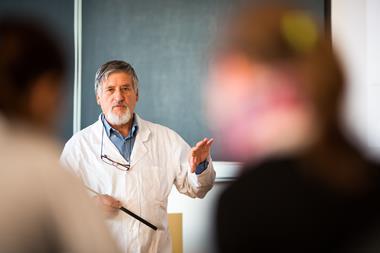Award success can mean picking up twice the funding over a decade
Why do scientists with similar backgrounds and abilities often achieve widely different levels of success? The ‘Matthew effect’ offers one explanation: if one of two equally talented young scholars is given an award, the winner will have a more successful career, due to resource and status advantages. In sociology, it is sometimes summarised as ‘the rich get richer, the poor get poorer’.
These results send a very concrete and actionable message to early career academics – keep persisting
Alexander Petersen, University of California, Merced
Now, a study of applicants for a funding scheme for young Dutch scientists has discovered the Matthew effect at play. ‘The Matthew effect was bigger than we expected and explains a lot of the variation we see in the chances of an applicant winning a mid-career grant,’ says Thijs Bol, study author at the University of Amsterdam, the Netherlands.
The Netherlands Organisation of Scientific Research interviews candidates for its young scientist research award and scores each applicant. The weighted averages are ranked, and a hard threshold divides the winners from the losers. The new study compared six winners who were just above the threshold and six who fell just short. ‘The applications around the cut-off are very similar and it is hard to distinguish them from one another,’ says Bol.
The six marginal winners and six marginal losers were tracked for 10 years. Winners accumulated more than twice as much funding over the next eight years as non-winners with near identical review scores. Those just above the cut-off were 1.5 times more likely to be full professors now.
The authors found two explanations. First, scientists who won awards were evaluated more positively than non-winners in future contests. Second, scientists who won past contests were more likely to enter future contests – 60% of winners did so, versus 40% of those who just missed out previously.
‘There are several policy implications,’ says Bol. ‘Science funders should reconsider to what extent they take previous grant success into account for current grant programmes. If someone won previously, this should be visible in their impact, publications and citations.’ Second, those who just missed out should be encouraged to apply again.
‘Given this clever set-up, the study is the first to provide credible evidence for Matthew effects in science funding,’ says Krist Vaesen, philosopher of science at the Technical University of Eindhoven, the Netherlands. Despite the winners receiving extra resources, they seem unable to increase their scientific impact, which leads him to conclude: ‘One should increase the success rates of competitive schemes to award more, but smaller grants.’
He adds that ‘funding agencies might ask applicants not to provide information on prior awards’, while another option is to ‘do away with grant proposal writing and grant peer review, and allocate grants based on bibliometric indicators’. This would save money, and researchers would have more time to do research.
‘The study’s novelty is in demonstrating that it’s the winner’s attitude and winner’s status that increases the likelihood of both applying in the future and winning again,’ notes Alexander Petersen, complex systems scientist at the University of California, Merced. ‘These results send a very concrete and actionable message to early career academics – keep persisting.’
References
T Bol et al, Proc. Natl. Acad. Sci. USA, 2018, DOI: 10.1073/pnas.1719557115

















No comments yet